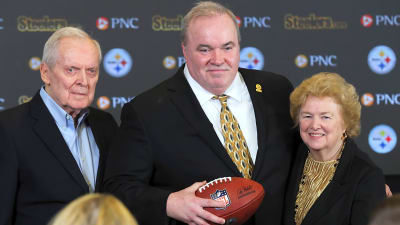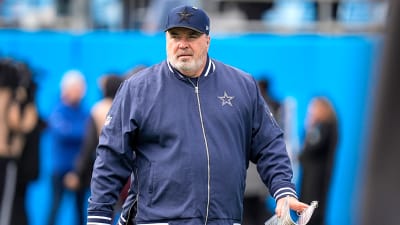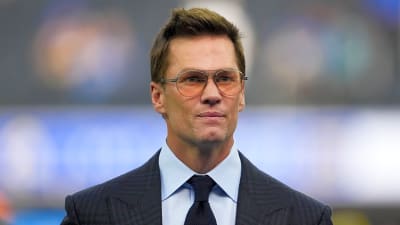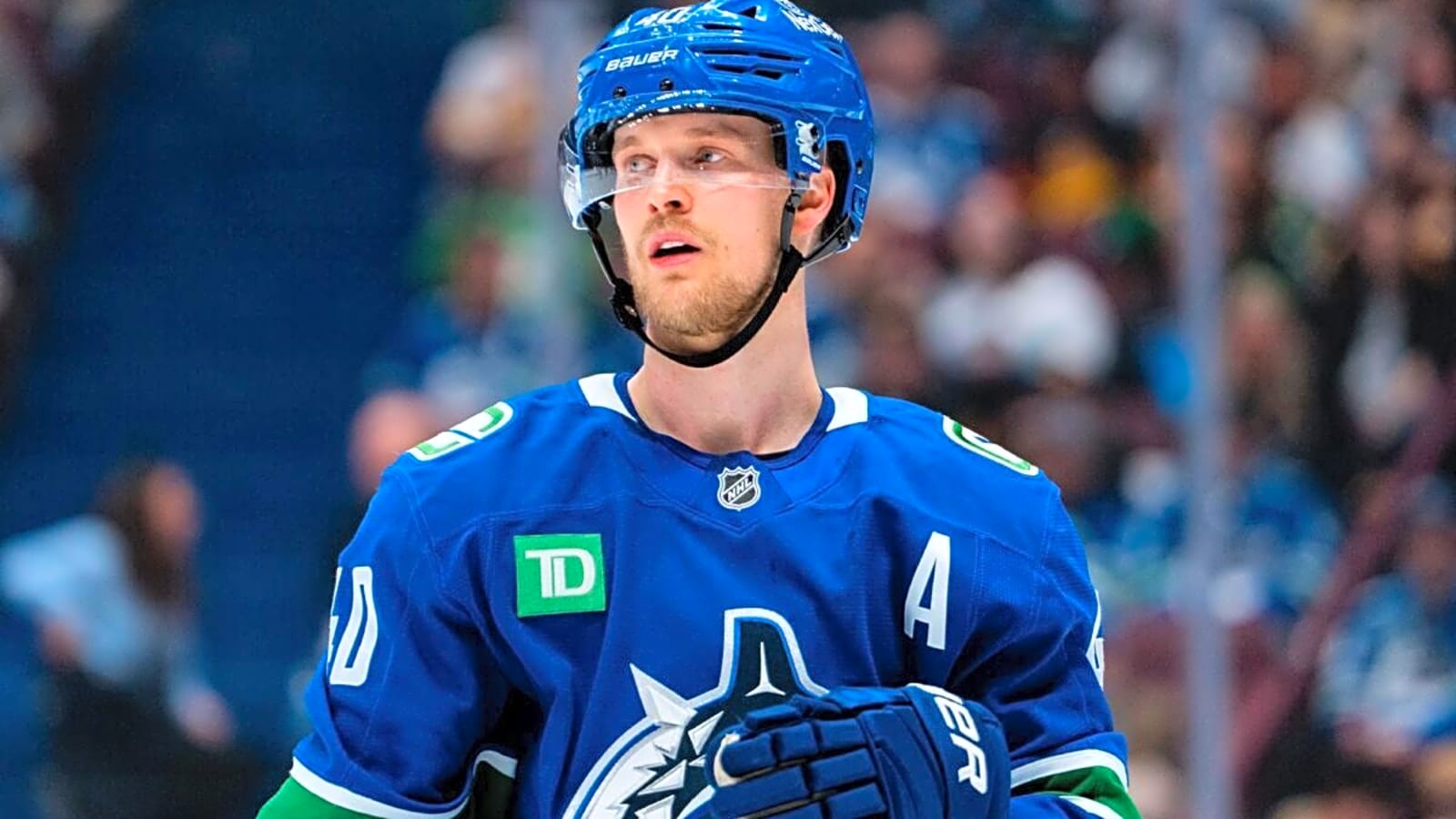
Every now and then, a hockey analyst captures something deeper than stats — they catch the feeling of a team. That’s what Iain MacIntyre does so well. He’s one of those rare analysts who sees both the game and the people inside it. On The FAN Hockey Show this week, he spoke about Elias Pettersson’s transformation — not just as a player, but as a person. For Vancouver Canucks fans, it was both reassuring and revealing.
MacIntyre’s message was simple but powerful: Pettersson looks like himself again. “He’s in a much better space,” MacIntyre said. And that space — mentally, emotionally, and physically — matters more than any single goal or assist in October. You could hear the respect in his voice. He’s watched Pettersson grow through frustration, injury, and pressure, and now, he sees something changing. “I saw Elias Pettersson smile the other day,” he said with a laugh. “I’m not kidding — and it was during an interview.”
For MacIntyre, that said it all. After a season where Pettersson struggled to find joy in the game — finishing with just 15 goals and 45 points — he’s arrived at camp lighter, more at ease, and more confident. There’s no drama this year with J.T. Miller, no cloud of uncertainty about his own long-term commitment. Instead, he’s surrounded by teammates who seem determined to help him carry the weight of expectation, rather than leave him stranded under it.
The Canucks Have Rallied Around Their Star
MacIntyre’s insight comes from being around the team every day. He knows their rhythms and moods, and he said something that struck a chord: the Canucks have rallied around Pettersson. His linemates — Jake DeBrusk on the left and Brock Boeser on the right — have been locked in with him since the very first shift of training camp. That kind of consistency isn’t accidental; it’s a sign of intent.
Both DeBrusk and Boeser told MacIntyre the same thing: yes, Pettersson needs to be better, but so do we. Last season’s numbers weren’t good enough for a player of his calibre, but the responsibility doesn’t fall on him alone. That kind of self-awareness from his linemates suggests a shift in the team’s tone — a recognition that leadership doesn’t mean isolation. MacIntyre put it beautifully: “They’re trying to make him feel like he’s not on an island.”
It’s a subtle but important change in the Canucks’ culture. When a star player like Pettersson carries too much of the emotional load, it wears everyone down. This season, the energy feels different — more balanced, more united. The players aren’t pretending the pressure’s gone, but they’re learning how to share it.
Two Canucks’ Players Who Hold the Keys
MacIntyre didn’t dodge the practical side of things either. For all the good vibes around training camp, he boiled Vancouver’s season down to two names: Pettersson and goaltender Thatcher Demko. If Pettersson plays to his ability and Demko stays healthy, the Canucks should look more like the 109-point team they were two years ago — not the 90-point version that faded late last season.
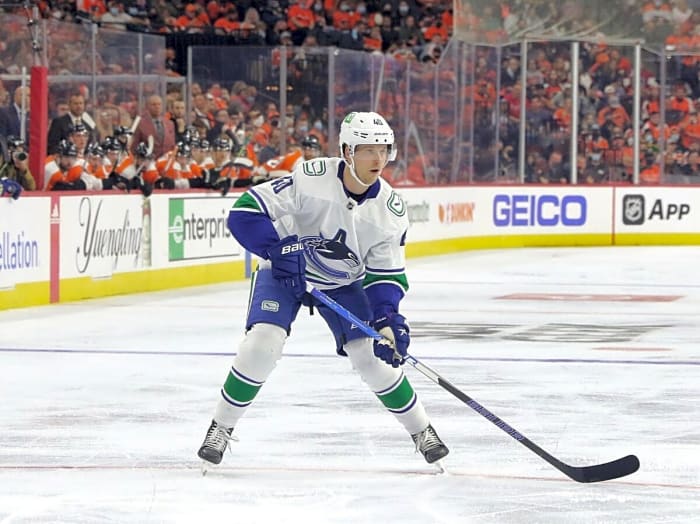
So far, both players have answered the call. Pettersson is skating with authority again — “He’s actually moving his feet, not just gliding,” as MacIntyre described it — and Demko, while not spectacular, has looked solid and steady in goal. Sometimes that’s all a team needs from its backbone: health and consistency. MacIntyre reminded listeners that the Canucks’ problems started with Demko’s lingering injury last season, which carried well into the season and set off a chain of instability.
If those two pieces hold, the rest of Vancouver’s puzzle starts to make sense. The team has a structure now under the new head coach, Adam Foote. For the first time in a while, there’s something that looks like real chemistry at the top of the lineup.
For Pettersson, a Smile and a Starting Point
In the end, what makes MacIntyre’s comments so refreshing isn’t that he’s optimistic — it’s that he’s observant. He’s not selling hope; he’s describing growth. Pettersson smiling in camp might sound like a throwaway line, but in a sport that often hides emotion behind clichés, it signals something deeper. The Canucks’ best player looks like he’s enjoying the game again — and when that happens, everything else tends to fall into place.
If you want to know what’s different about the Canucks in 2025-26, MacIntyre just told you. The mood has changed. The players have rallied. And their best forward, finally, seems ready to lead again — not out of obligation, but out of joy.
More must-reads:
- Settlement paves way for QB Darian Mensah to chase national title at Miami
- Yankees legend Derek Jeter defends Hal Steinbrenner amid complaints about offseason
- The 'Youngest Conference Champ QBs' quiz
Breaking News
Trending News
Customize Your Newsletter
 +
+
Get the latest news and rumors, customized to your favorite sports and teams. Emailed daily. Always free!
